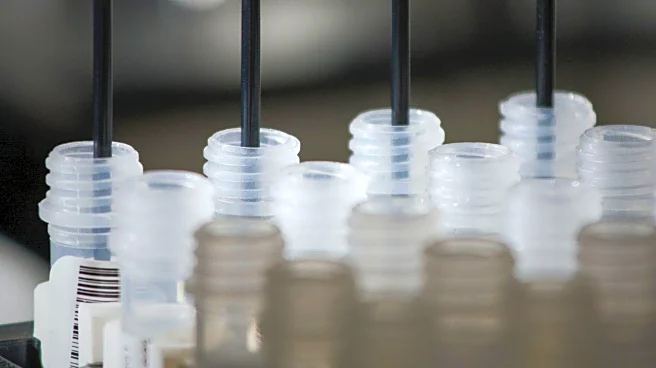What's Happening?
Grail's Galleri test, a multi-cancer early detection (MCED) blood test, has demonstrated improved efficacy in the PATHFINDER 2 trial. Conducted in the U.S. and Canada, the trial involved 25,000 adults
and showed a significant increase in cancer detection rates when combined with standard screening methods. The test successfully identified cancers that currently lack recommended screening tests, offering a potential new tool for early cancer detection. The trial results were presented at the ESMO cancer congress, highlighting the test's ability to detect cancer DNA fragments in blood with a high degree of accuracy.
Why It's Important?
The Galleri test represents a significant advancement in cancer screening technology, with the potential to detect multiple cancer types at an early stage. This could lead to earlier interventions and improved patient outcomes, particularly for cancers that are typically diagnosed late. The test's ability to identify cancers without existing screening protocols could fill a critical gap in current healthcare practices. However, some experts express caution, noting that the test's detection rate, while improved, still leaves room for false positives and negatives. The economic implications are also significant, as the test's cost-effectiveness will be a key factor in its adoption by healthcare systems.
What's Next?
Grail plans to submit the PATHFINDER 2 trial data to the FDA as part of its premarket approval application. The company is also conducting a large-scale trial in the UK, with results expected next year. These steps are crucial for gaining regulatory approval and determining the test's viability for widespread use. The outcomes of these trials will likely influence healthcare policy and the future of cancer screening practices. As the technology develops, it may also face scrutiny regarding its cost and accessibility, which will be important considerations for its integration into routine medical care.










